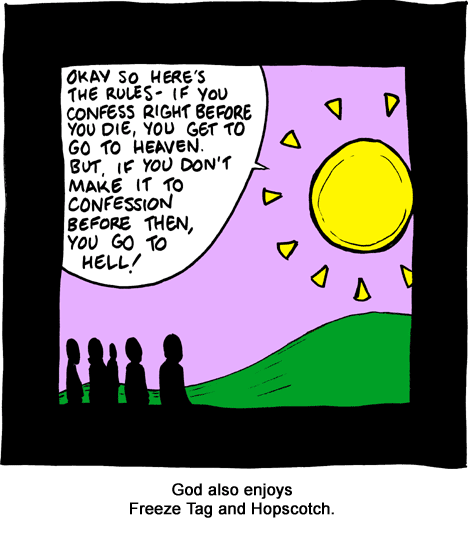Thanks to a link from a Jewish friend (whose wife published an article there), I have become a devotee of the on-line version of Tablet Magazine (subtitle: “A New Read on Jewish Life”). The level of writing (and journalism) is excellent, and there are at least a few articles every week or so that I end up reading.
I was struck by one today, “Learning Judaism as a Native Language Requires More Than Synagogue Once a Year” by Mark Oppenheimer. He starts:
It’s the High Holiday season, the time of year when synagogues double or triple or quadruple in attendance, as barely affiliated Jews stream back through the sanctuary doors, looking for their yearly connection. Some are scared, others disdainful, many bored. And confused—lots of confusion. As someone who writes about religion for a living, I have conversations throughout the year with these “High Holiday Jews,” but also with other Jews, some of them regular worshippers, others infrequent, who are trying to figure out why Judaism is so hard for them. I’m not a rabbi and I don’t have any good answers, but I do have some reflections, which I hope will put some people’s minds at ease, maybe even help them.
His answer: practice:
Religious practice, like musical or athletic practice, is easier for some than for others. For some people, it is so difficult that they probably should not even bother. I have no ear for music, and if I wanted to learn guitar even reasonably well it would take so many hours, at the cost of so much frustration, that I should probably just skip it. For some people, religion is like that: They don’t get it, they don’t see why it is meaningful, their not-getting-it makes them angry or resentful or sad or bored, and they would always rather be doing something else. Such people should, I think, stop trying. Don’t worry that your bubbe is looking down from heaven ashamed of you; after all, you don’t believe in heaven anyway. On Yom Kippur this year, do something that brings you joy, that takes you out of yourself, that helps you reflect, but don’t come to synagogue.
For everyone else, however, those of you who feel that maybe religion holds something for you, some mystery you just haven’t unlocked yet, or connection to a tradition you value, think about those things you have mastered, maybe in arts or sports, that came in time, with some regular practice. Think how rewarding those things are now. Maybe religion is like that. And maybe the next time you go to synagogue, you should take a bucket of balls, and not worry if you double-fault.
I think this touches on the reason why so many Latter-day Saints, having stopped attending church for a period of time, find it hard to start up again even when they want to.
My own brush with inactivity happened, of all places, at BYU, during my senior year of college. My (former) wife and I were head residents at Heritage Halls (back when it was all-girls); I had the responsibility of going around every Saturday night starting at 1:30 am to (a) kick all guys out of the dorms and (b) make sure all the outside doors were locked. Since we’re talking about 48 apartments in two halls (Snow and Smith), it meant that I usually didn’t get to bed until 2:30 am or later, while the student ward we attended (I was executive secretary) met relatively early on Sunday morning. We had a year-old toddler, and it was easy to decide to sleep in instead of getting up and getting ourselves ready.
Then one Saturday night, we realized it had been several weeks since we had been to church. And here’s the interesting part: my first reaction was, “We need to get up in the morning and go to church”, while my second reaction was a fear of embarrassment — that when we walked in, everyone was going to ask us where we had been or make other related comments. The impulse not to go at all startled me, since I had always been and still considered myself a staunch, faithful member. We did get up, we did go, and I’ve never gone through a period of inactivity again, but since then, I have always had sympathy for those who would like to start going to church again, but find it hard to do so.
I think Oppenheimer summed up that challenge with this passage:
But the religion is not native to you anymore, so if you do want a greater ease with it, it will take some time. Just as with guitar, or basketball. Or French or Swahili. If they aren’t native, they take a little work.
Food for thought; go read the whole thing. ..bruce w..


